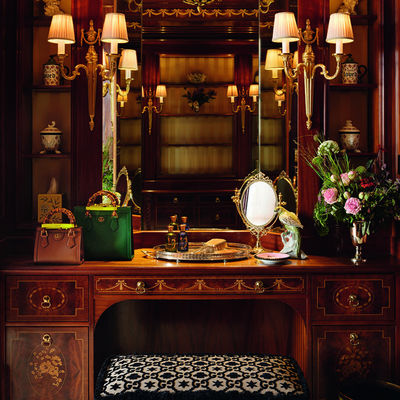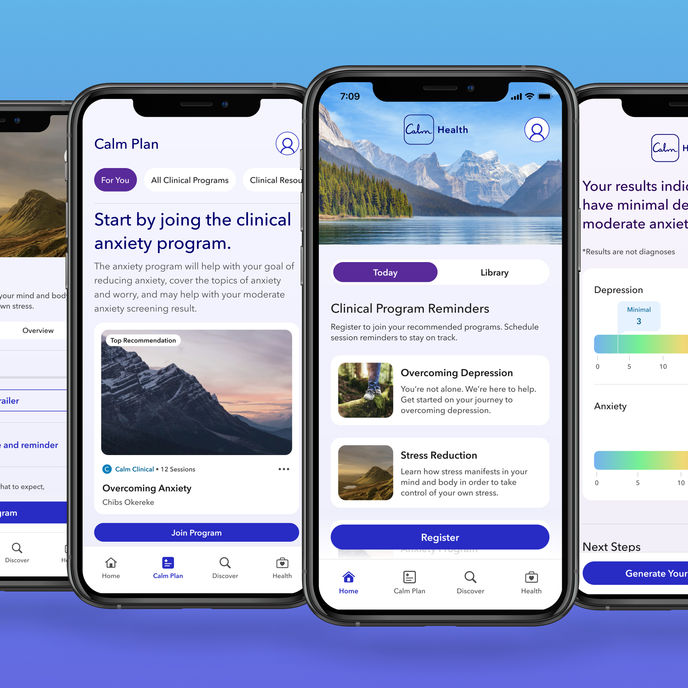28 : 10 : 22 : Weekly Debrief
This week: Embracing the ordinary, Gucci partners up with The Savoy, a look at our eco-centric future, Calm’s new mental health programme, and an interconnected care ritual for menstruators
1. Eager juice rebrand embraces the ordinary
UK – Premium juice company Eager receives a colourful makeover that takes the frills out of fruit juice. Designed by creative agency Ragged Edge, the rebrand embraces the ordinary with its minimalist design, bright typography and transparent taglines that don’t pretend to be anything other than ordinary fruit juice.
The new identity avoids sweeping claims that try to persuade customers that the juice is the healthiest and freshest choice. Max Ottigon, co-founder of Ragged Edge, says the industry is ‘littered with false claims and unearned hype.’ Instead, Ottigon wants Eager to stand out in a market saturated with bold claims and greenwashing, rebelling against the usual juice marketing tropes by choosing to be more honest with customers.
With taglines such as ‘not too picky pineapple juice’, the rebrand shifts the attention towards humble ingredients and classic flavours. For consumers overwhelmed by the bold claims of the fruit juice market, the rebrand aims to spark feelings of comfort and nostalgia.
 Gucci Valigeria at The Savoy, UK
Gucci Valigeria at The Savoy, UK
2. Gucci and The Savoy partner for the Valigeria pop-up
London – Gucci has joined forces with The Savoy for the opening of a pop-up luggage boutique in the famous hotel.
The Gucci Valigeria offers diverse travel leather goods – including trunks, suitcases, holdalls and handbags – but also board games, travel pet accessories and skateboards, most of which are part of the exclusive Gucci Savoy collection. Guests who book the hotel’s Royal suite, decorated by Gucci in 2021, will enjoy additional perks including a dedicated butler and use of The Savoy's Rolls-Royce.
‘The Savoy is constantly evolving to accommodate the changing desires of sophisticated global travellers; the suite caters to the needs of a style-driven high net worth guest while the Valigeria can provide a taste of luxury to a much wider audience,’ says Franck Arnold, managing director of The Savoy.
The partnership reflects longstanding ties between the two companies, which originated when Guccio Gucci first came to London in the 1800s and was hired as a porter by the hotel, and caters to HNWI consumers’ appetite for Gated Retail concepts.
3. Dutch Invertuals examines our eco-centric future
Eindhoven – At Dutch Design Week 2022, design collective Dutch Invertuals exhibited its ongoing research project, Expedition Æqualis, at a dinner hosted in collaboration with The Future Laboratory and Philips' design principal of foresight, Reon Brand.
The exhibition, which runs 22–30 October, explores how design can be used to transition towards an eco-centric future that aims to rebalance society's relationship with nature by putting planetary needs above human needs. Eight designers created tangible designs which examine themes relating to interspecies biodiversity, adaptive gender tropes, and eco-material innovation.
Alongside the exhibition, which invites visitors to challenge their own relationship with nature, Dutch Invertuals hosted a dinner with guest speaker Kees Klomp, professor of applied science at Rotterdam University of Applied Sciences. Klomps' research suggests a future in which cross-sector pollination can aid biodiversity through collaboration and creativity, presenting the evolution of economics in four stages: neo-classical economics, which values externalised profitability; environmental economics, which embraces sustainability; ecological economics, which embeds circularity into its model; and existential economics, which embraces thriveability for people, planet and profit.
Unpack and explore the eight design projects in our Dutch Invertuals round-up, launching next week.
4. Calm now offers condition-specific mental health care
US – Calm announces its new mental health programme Calm Health, connecting users to clinical condition-specific care. Self-insured patients can get access, first completing an in-app survey that identifies how it can best meet their individual needs. Once completed, users are given a personalised mental health plan and tools such as medication and symptom tracking, supporting people living with mental health conditions such as depression and anxiety.
Calm hopes the programme will ease pressure on patient referrals, as many primary care physicians in the US are currently unable to refer patients to mental health services related to physical conditions.
Calm Health is bridging the gap between innovative technology, clinical care and ‘increasing access to quality, evidence-based mental health resources,’ says Martha Temple, former CEO at Optum Behavioural Health, meeting the growing demand for digital wellbeing solutions. Explore our macrotrend Synchronised Care for more on the changing face of health care.
 Calm, US
Calm, US
5. An interconnected care ritual for menstruators
Eindhoven - Lucrezia Alessandroni, a graduate from Central Saint Martins, is advocating for a more synchronised approach to care with a menstrual routine that better connects people to their cycle.
The conceptual project comprises a menstrual cup and an incubator. The incubator enables users to grow their own anti-inflammatory bacteria on their personal menstrual cup. Designed to be used when menstruating, the living cup reduces any inflammatory discomfort that people with periods might experience. The purpose of the project, however, is to encourage a mutualistic relationship between the product and experiencer, and so requires some care and attention from the user as well. Users are asked to care for both the product and bacteria: by adjusting the UV sterilisation level to avoid overgrowth and unwanted organisms; by maintaining humidity levels to keep it hydrated; and by altering temperature levels to preserve the humidity if it drops. The ritual should be repeated by users after every menstrual cycle.
The level of care required in this ritual creates an intimate connection between the menstruator and the cup, and thus reduces the desire to purchase single-use hygiene products. It also helps increase awareness around periods and challenges the societal stigma.
Lucrezia Alessandroni’s project is one of the thousands of exploratory projects that are being presented at Dutch Design Week 2022. Follow our online platforms as we continue to spotlight the most interesting and insightful projects and discussions from Dutch Design Week over the next few weeks.
To future-proof your world, visit The Future Laboratory's forecasting platform LS:N Global for daily news, opinions, trends, sector specific insights, and strategic toolkits.
Want to read more?
Become a member today!
Sign up to one of our trends intelligence platform, LS:N Global and get unlimited access to a hive of insights - from microtrends and macro trends to market reports, daily news, research across eight industry sectors and much more.
Discover our memberships
Already a member? Click here to login
